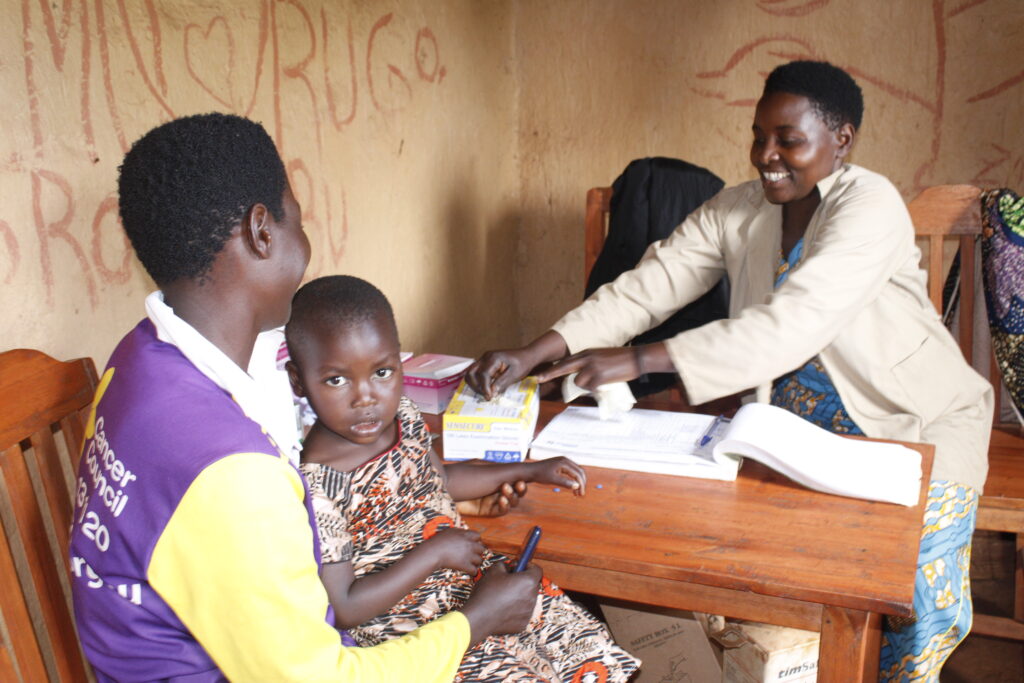Community health workers are an essential part of life in rural Burundi. Cordaid supports and trains them through a project that improves sexual and reproductive health services through performance-based financing. They raise awareness, provide treatments at home and do the necessary follow-ups. “Without their support, my daughter would not have been born into the hands of skilled health workers.”

Pascaline Tuyirere is a 40-year-old woman living in the Gitunga zone in central Burundi. After she got pregnant, a community health worker regularly visited Pascaline to remind her of the importance of prenatal consultation and nutritional education.
When she gave birth to her daughter Pendo Raha, the health worker was also there for her. “I wasn’t able to walk to the health centre,” Pascaline says. “Someone alerted the community health worker. He contacted the nurse.” The health centre quickly sent an ambulance to pick Pascaline up, allowing her to give birth to her daughter with the help of professional medical staff.

Treating diseases
Cordaid trains the health workers to treat various diseases, including malaria, respiratory infections, and diarrhoea. We met one of the community health workers who is doing what she likes most: saving lives. She was treating a small child with a serious fever. “If the test shows that the child is suffering from malaria”, she explains, “we give him anti-malarial drugs. If the test is negative, we refer him to the health centre.”
A bridge between the community and the health centre
The relationship between community health workers and healthcare providers has not always been the most effective. Antoine Sengiyumva, head of the Muyebe Health Centre, confided in us: “When the community health workers started their work, we were afraid because we thought they would replace us, as they already know how to take care of common diseases.”
Later, he realised that they were there to support him and that they formed a bridge between the community and the health centre. “They help to identify health problems in the community and decide when patients need to be transferred. These groups are important relays enabling health centres to improve the population’s health considerably.”